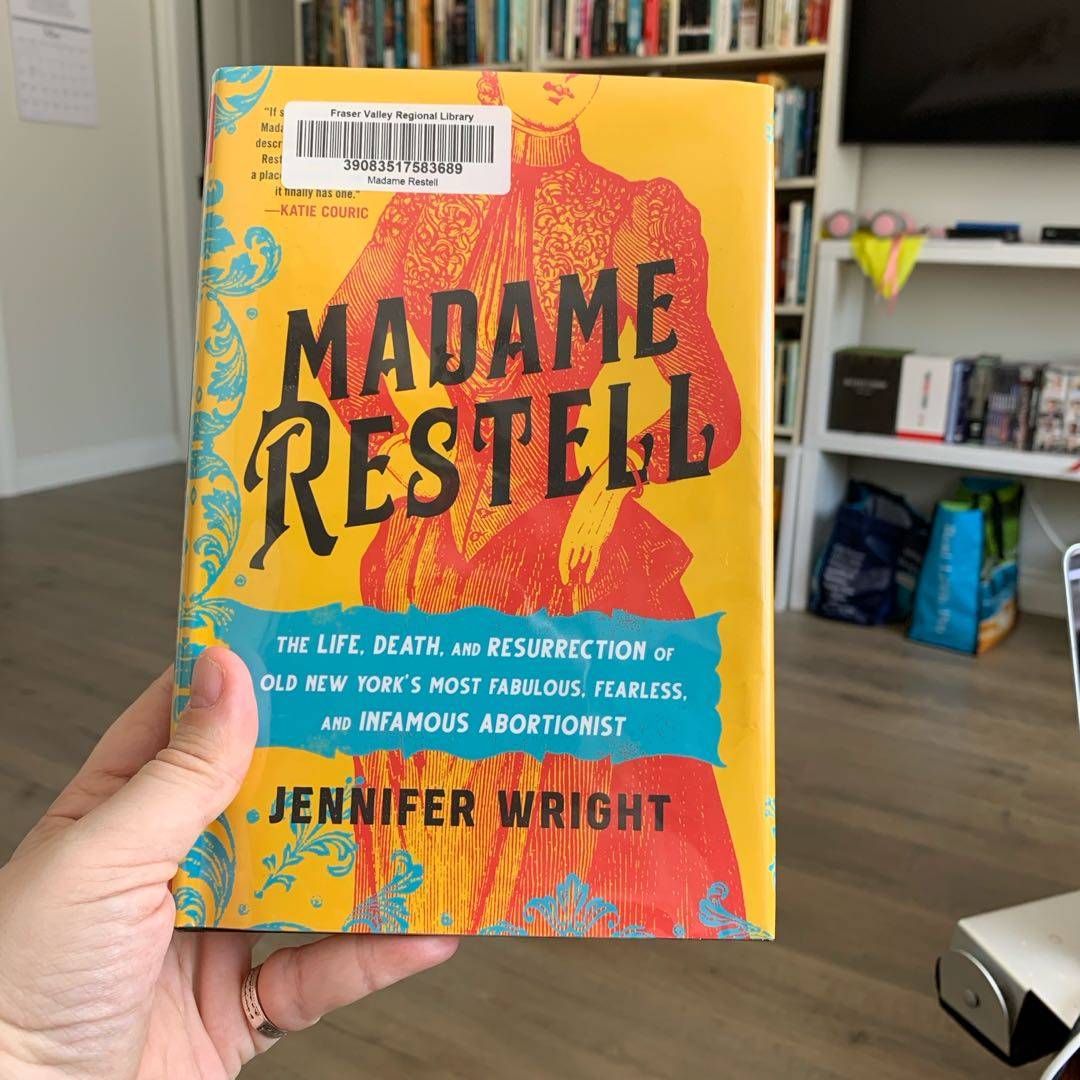
4⭐️ Really enjoyed the book, but felt that it was a little too slow at times. #2025 #bookreview #nonfiction #biography

4⭐️ Really enjoyed the book, but felt that it was a little too slow at times. #2025 #bookreview #nonfiction #biography
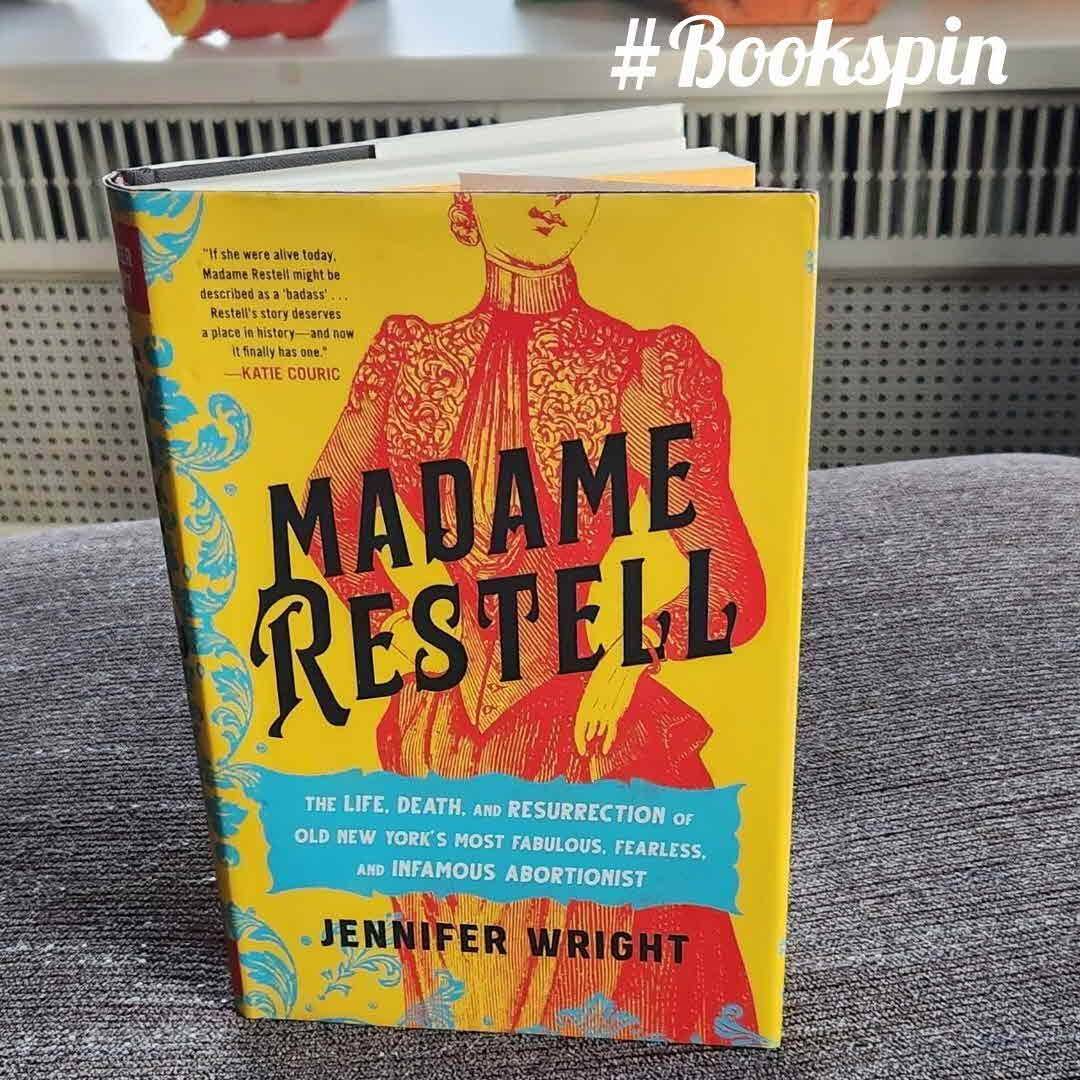
This was a fascinating topic and seems well researched, but it was badly written. The continual use of 2nd person pov to talk directly to the reader is annoying. It is filled with the author's asides and random comments that feel more like a social media post or blog. The writing style is just immature and tries to be too "hip." It also gets very tedious when she includes long tangents about some loosely-connected historical aspect of the time. ⬇️
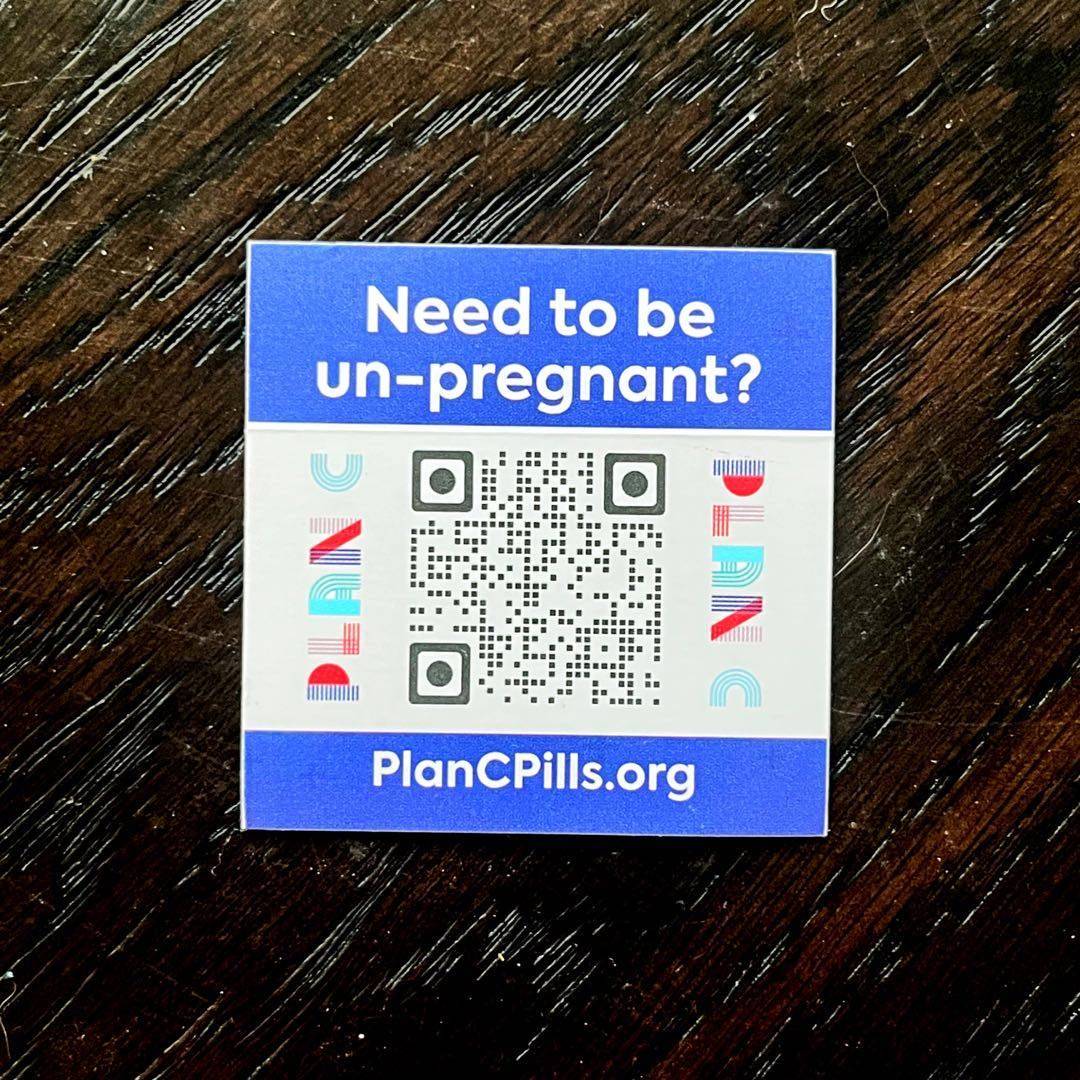
This post is dedicated to Madame Restell, and it is for all of us. Also, ineedana.com.
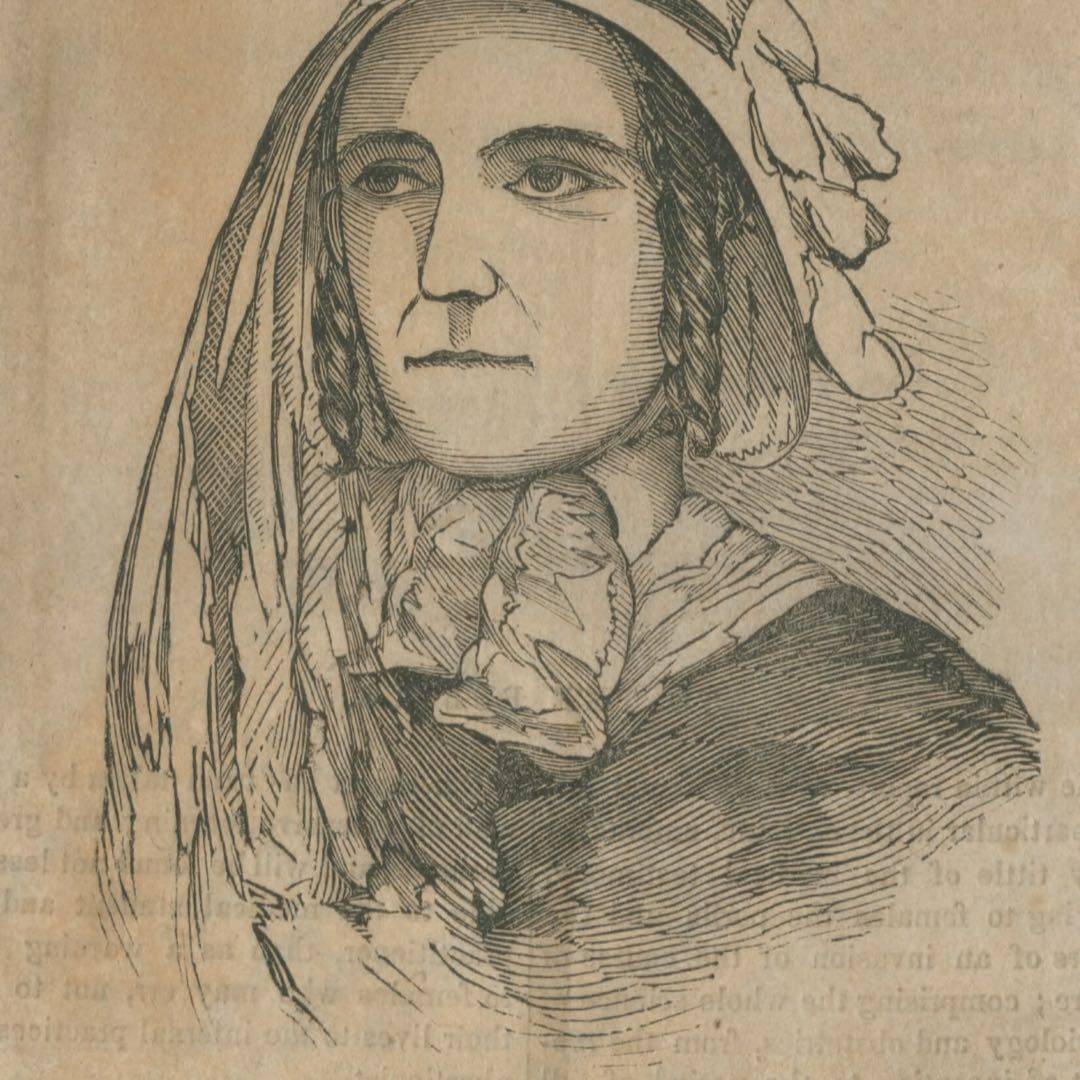
I have come across the story of this remarkable woman many times in other books, but only now learned the details of her life. Madame Restell, or Ann Trow, was a famous abortion provider in 19th century NY. She was fearless and determined to help others with their needs, be it contraception, or abortion. She could not be contained by the misogynist men around her. This is an important read as rights are rapidly disappearing for pregnant

Americans don‘t like learning history. They like learning propaganda. They enjoy stories that are exclusively about how America is great and always has been. Do not let your children believe in a fictitious, rosy version of the past where every woman was happily a mother. Tell them the true history of this country, where abortion has always been commonly practiced. And tell them your *own history.

A case could be made that forcing someone to undergo losing about half the blood in their body is worth it if it saves a life, but there are a great many bodily sacrifices that save lives. Donating a kidney to someone in need would, for example, absolutely save a sentient, fully developed life. Consenting to donate your organs after death saves lives, at no inconvenience to you. My life was saved because people donate blood. The government

To point out that repealing women‘s access to birth control is, perhaps not motivated by a beneficent spirit on the part of Republican lawmakers feels a bit fruitless. Still, it remains easier to protect theoretical children—by forcing women to do something they do not wish to do at risk to their own health—then to protect actual children. The government can force a person to give birth, but its interest and responsibility ends there. It is a
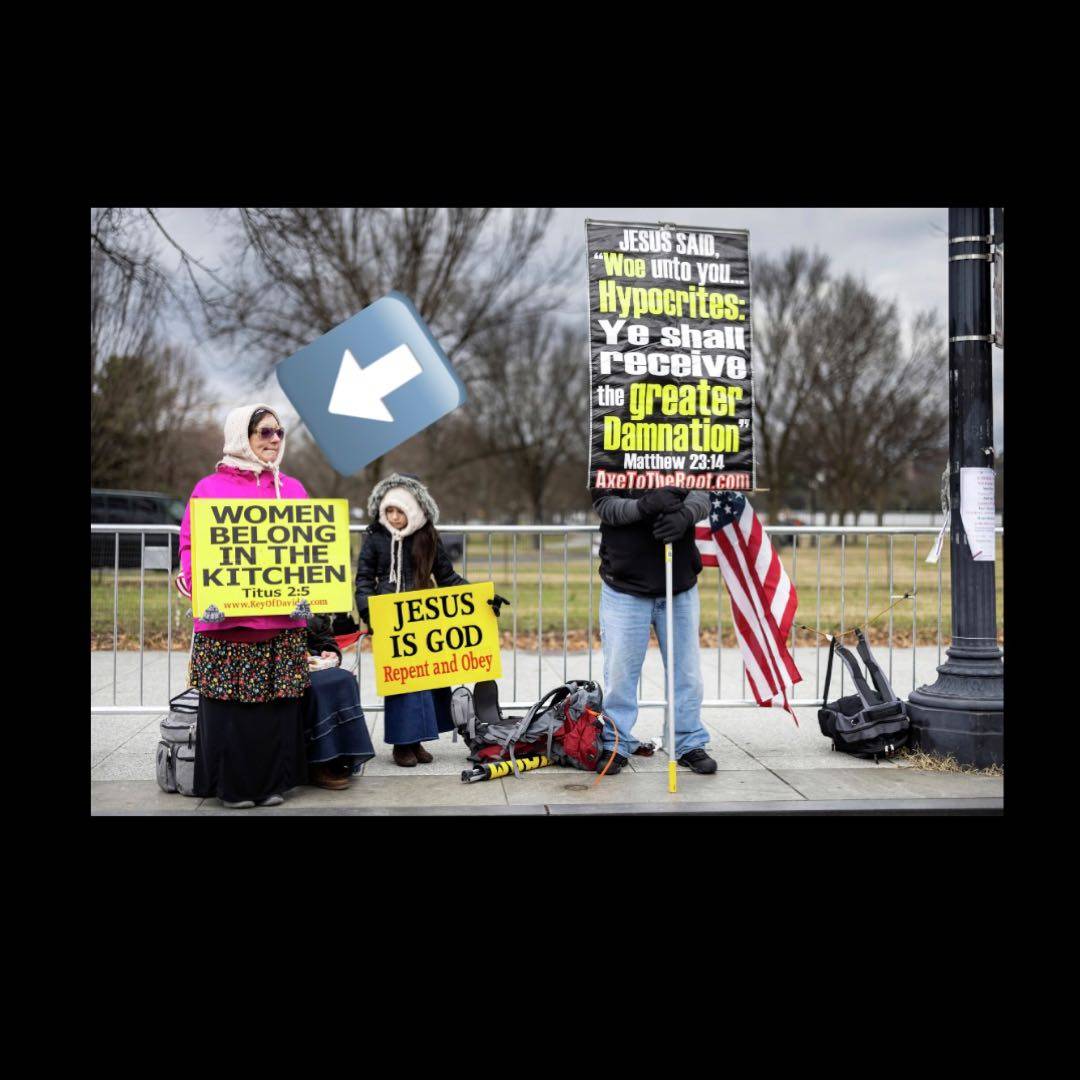
There are quite a lot of people who would like to see women back in the kitchen, barefoot, and pregnant. Whether women like it or not. In America, the unspoken conservative position, now or 150 years ago, has been that a “good” woman is one who is virginal but flawlessly attractive enough to get a man to marry her, after which she should keep his house, satisfy all his sexual desires, bear and raise his children, and never complain for any reason

Upon Madam Restell‘s death, the satirical magazine Puck ran a comical illustration depicting what Fifth Avenue might look like in five years. In Restell‘s absence, it imagined, the street would be filled with children and heavily pregnant women pushing baby carriages. That proved to be less than prophetic. Comstock had made abortion shameful for women, but he‘d done nothing to change the circumstances that caused women to have them. So, they

Madame Restell may have died by suicide in that bathtub, Comstock‘s pursuit having overwhelmed her. Or she might have died later, peacefully sipping champagne in Paris and covered head to toe in her diamonds. But her age was over. The time when a woman could run ads in a newspaper suggesting family limitation and think that people would respond calmly was a thing of the past. Abortionists of the future would not flaunt themselves in their
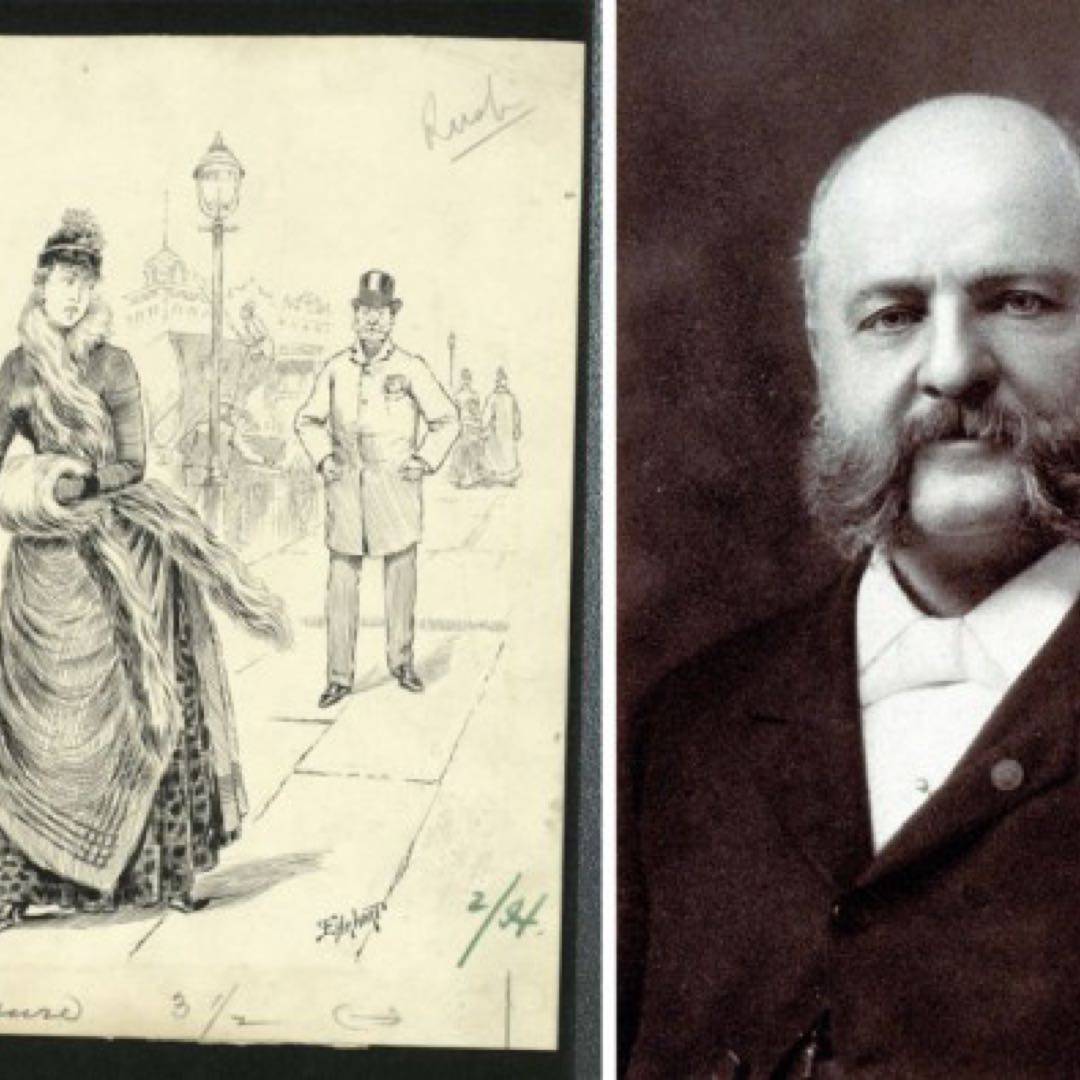
By 1873, Anthony Comstock was in Washington, attempting to convince legislators to pass the Act for the Suppression of Trade in, and Circulation of, Obscene Literature and Articles of Immoral Use. This would later come to be known as the “Comstock Act” which banned sending “obscene, lewd, or lascivious” publications through the mail. Unlike past laws, this one considered any information about contraception or abortion, as well as instruments or

Ah, yes. The consequences they were bringing upon the country by not having enough white Protestant babies. Historically, people who have treated minorities abominably have hated the idea of becoming a minority themselves. There was much emphasis on the fact that white women having abortions were undermining America as a whole, as “the Anglo-American race is actually dying out.” A pastor explained that abortion was evil precisely *because it
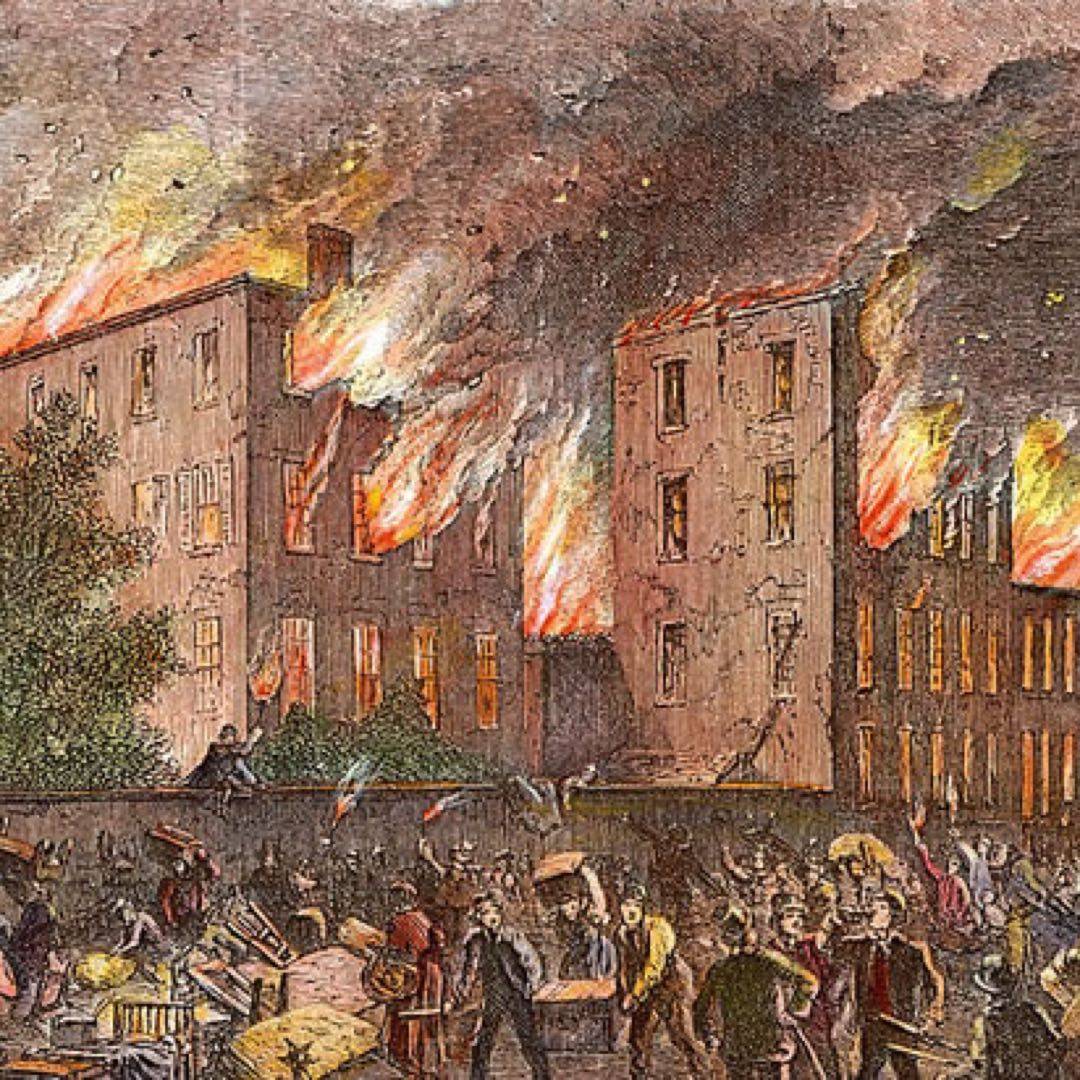
In the Draft Riots of 1863, New Yorkers, many white, turned violently against Black people. The riots broke out in Lower Manhattan, where lower-class people resented the fact that, for $300, upper-class men could buy their way out of the draft, as well as the fact that Black people, who were not citizens, were exempt. These unhappy draftees did not attack upper-class men, however; they attacked Black people. The people who felt abortion was
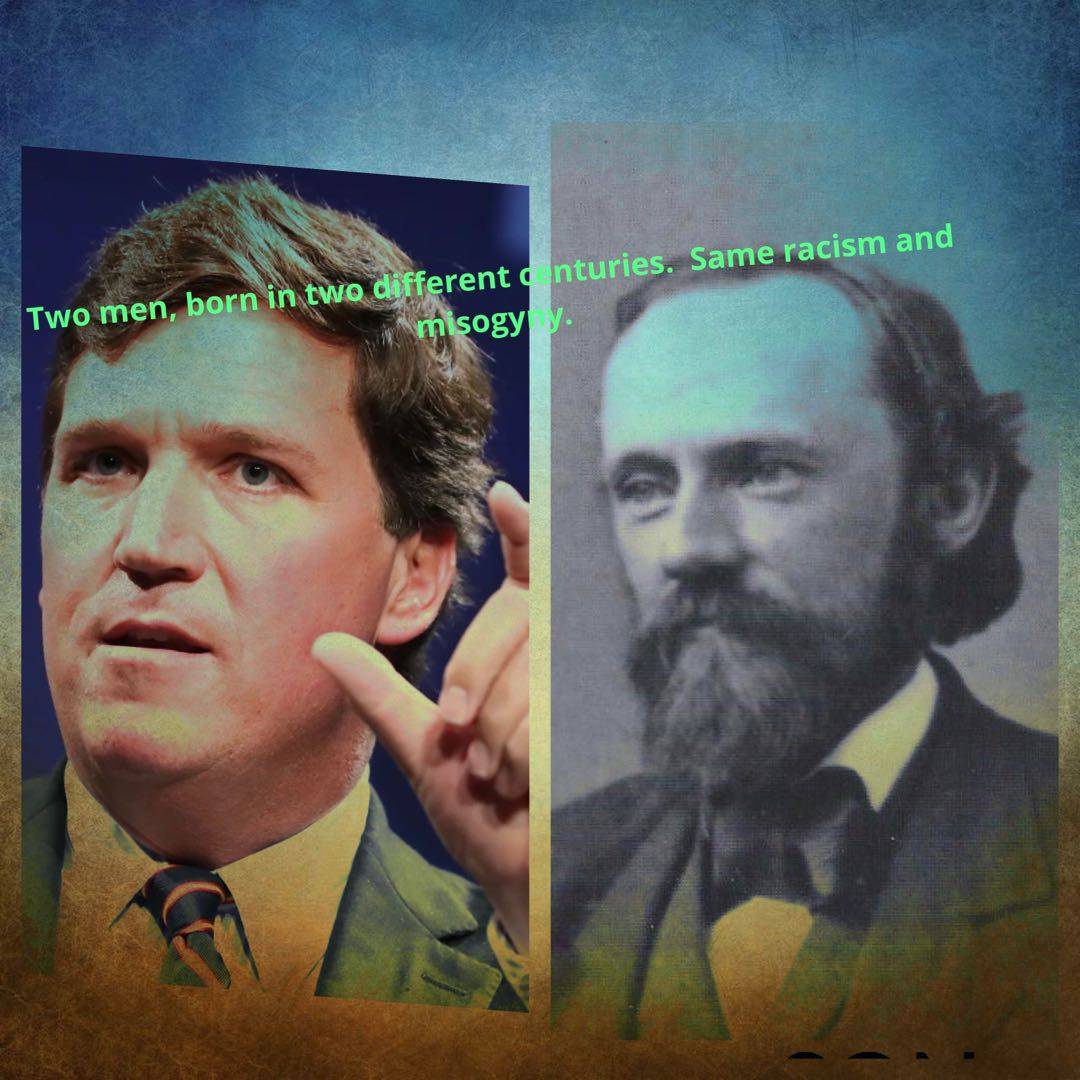
Beyond his conviction in fetal personhood, Storer‘s sentiments also had to do with his fears about the replacement of the white race in America. He wondered, regarding the western states, “Shall they be filled with our children or by those of aliens? This is the question that our own women must answer; upon their loins depends the future destiny of the nation.”
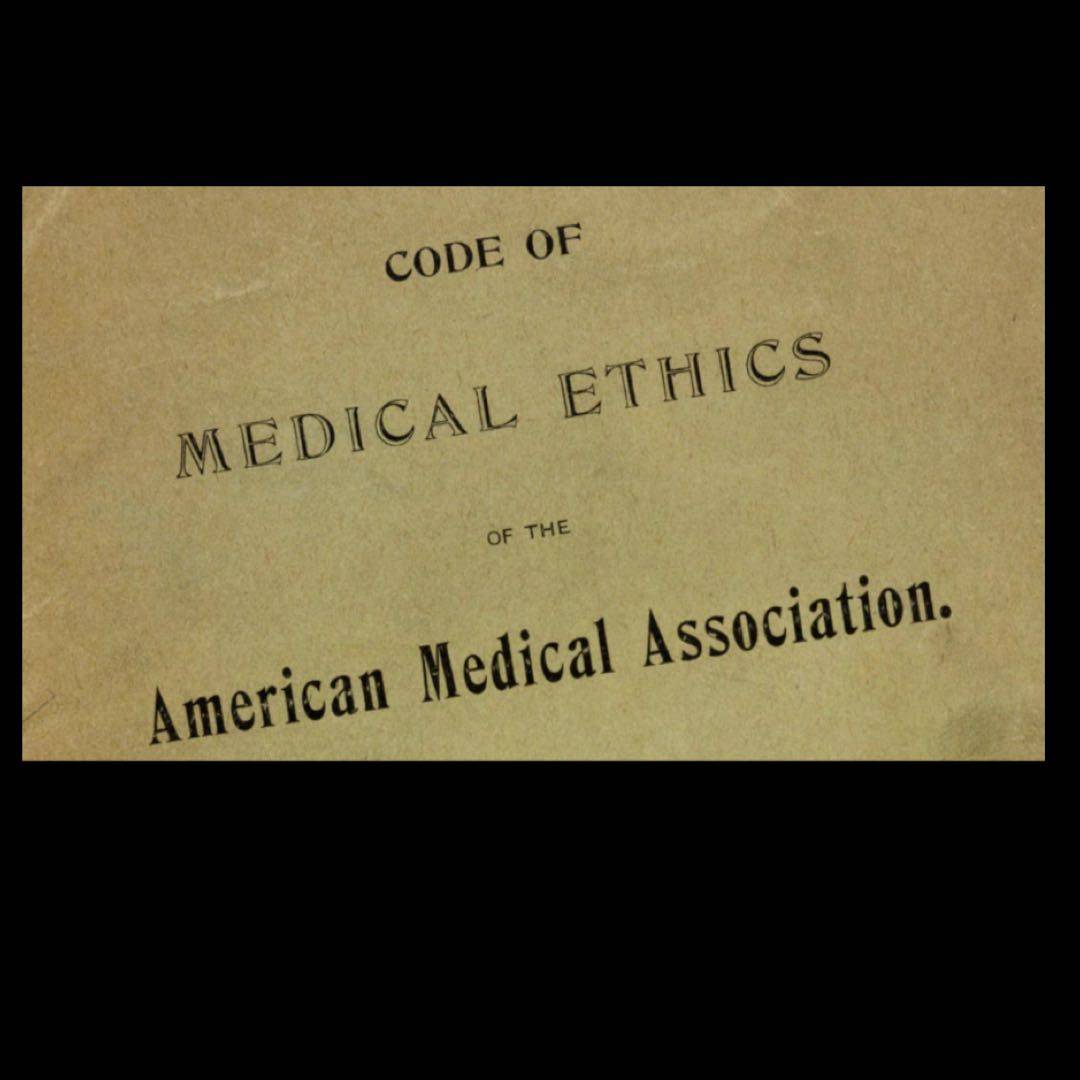
The AMA had been formed in 1847 with the intent to “promote the art and science of medicine and the betterment of public health.” It did so by calling for stricter regulations regarding medicines sold. The organization initially had no opinion on the subject of abortion. It only began taking a formal stance on the issue—coming out against it—in 1857, at the behest of the doctor Horatio Storer.

Latching on to people‘s fears regarding immigration was an effective way to impugn women who got abortions as unpatriotic. In 1868, the anti-abortion author J. T. Cook worried that “the Anglo-Saxon race is rapidly dying out…and the Germans, and Irish, and Swedes…are fast taking the country…by the sheer force of their ever increasing armies of babies.” Cook felt the only answer for this was for women to “stop murdering their children, and stop

Making a witty, unrepentant, female millionaire abortionist relatable to an all-male jury is tricky, especially if these men are of the nineteenth-century mindset, believing that normal women have tiny skulls that only contain love, household skills, and/or hysteria.

Admittedly, this is a generalized statement for all the men of the 1840s, but—no one is having sex “every five minutes.” No matter *how unchaperoned they are. Even just the *concept is exhausting. It is truly fascinating what men during this period thought could unleash a tidal wave of female lasciviousness—a speculum, a walk with a painter and his girlfriend, any unattended interaction with men. One can only imagine the disappointment of
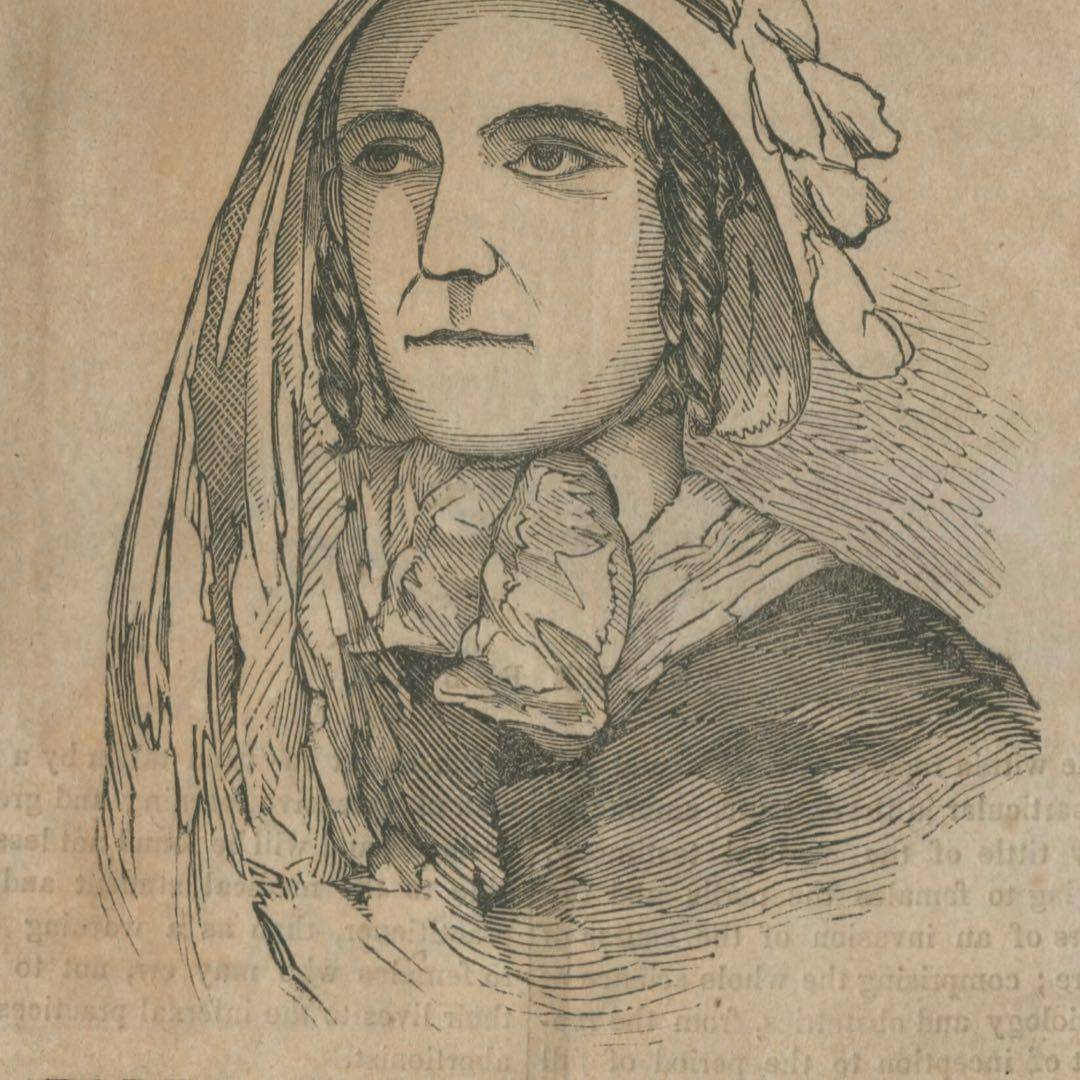
I hate to say that this book wasn‘t great. The story is so interesting, but I found myself dragging and pushing to keep reading. I think maybe it could‘ve been my reading mood, so I am not discouraging anyone to read it. If anyone else felt this way, let me know what you thought.
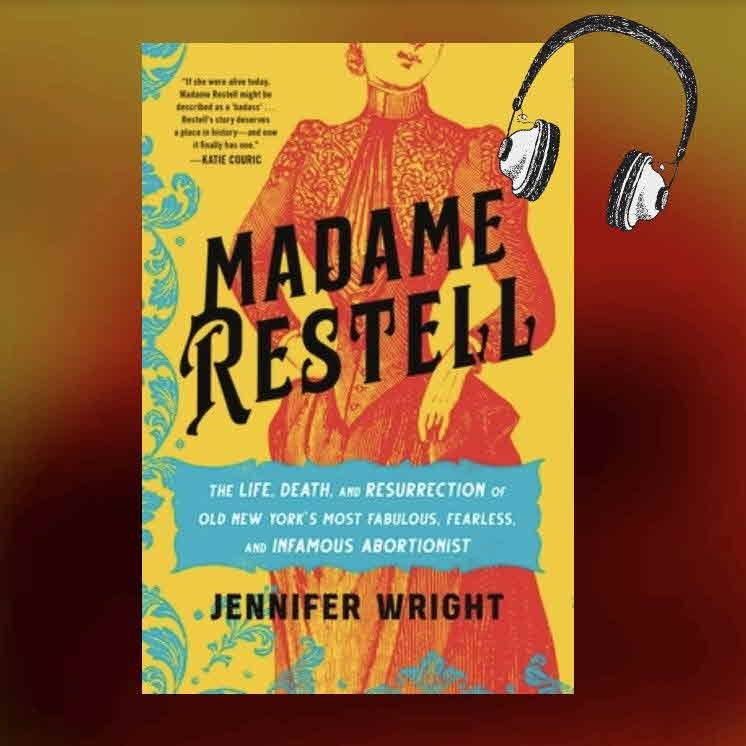
This was such an informative and witty book. The topic is very timely as the author notes throughout but especially in her very personal and must read epilogue.
4.5/5 it was filled with information but told in an engaging way.
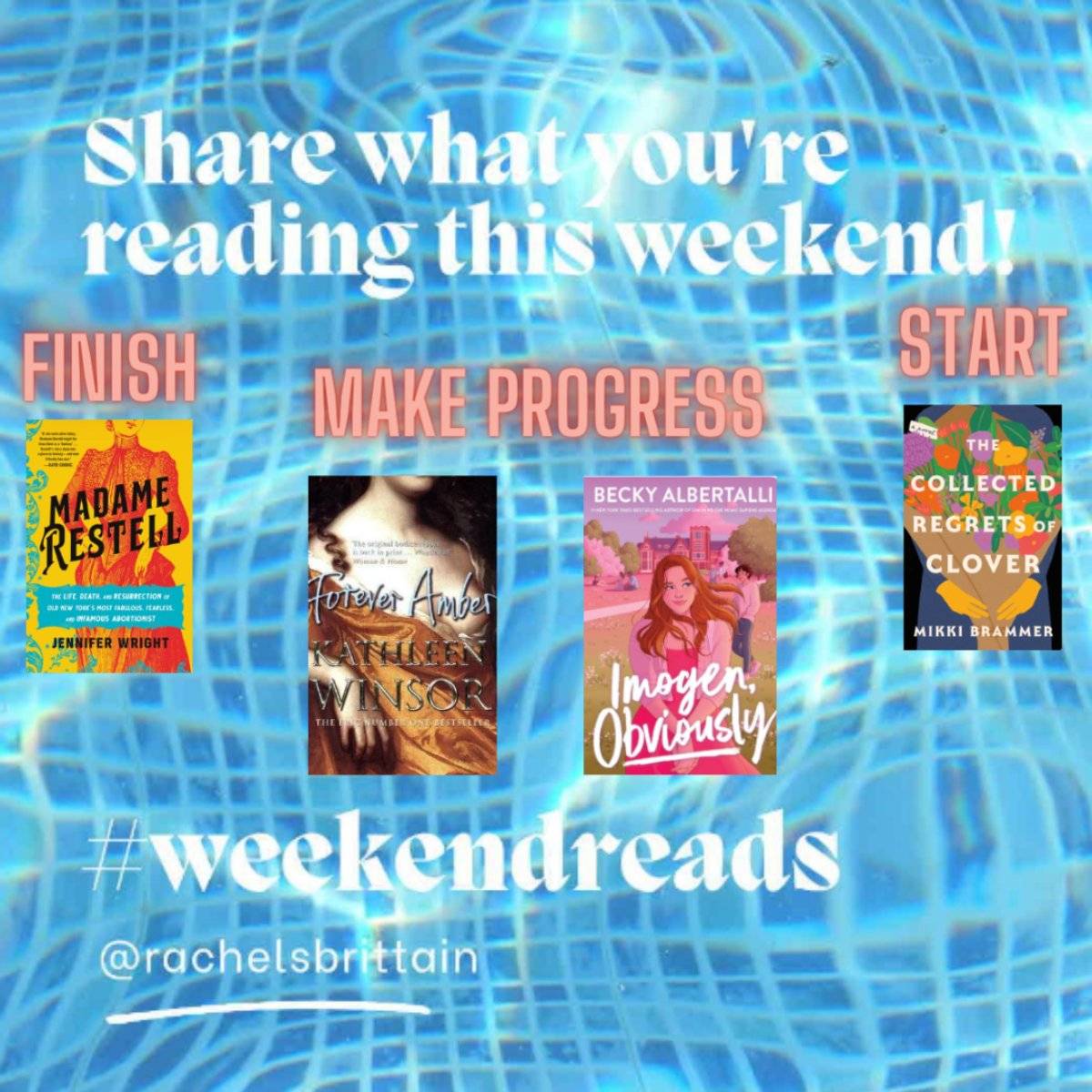
@rachelsbrittain #weekendreads
🎧 Madame Restell & Collected Regrets to listen to while cleaning house and my daily jog
Making progress in Forever Amber, I got to the half way point last night, which puts me right on track to finish by end of month
I need to get Imogen back to the library by Sunday, so started that last night, it is a light YA read and super quick even if 400+ pages, it is my goal for Saturday.
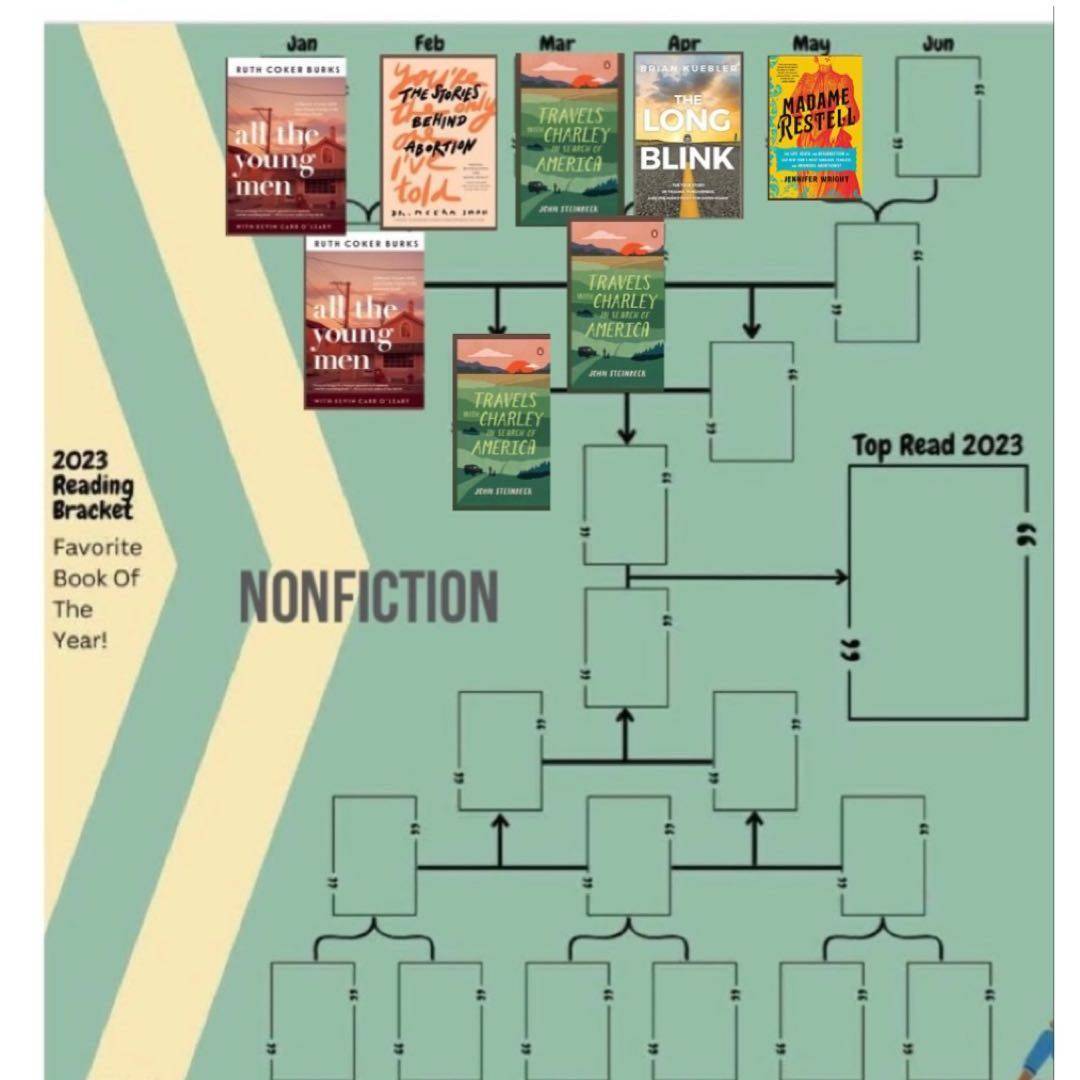
My NONFICTION pick for May is a timely and educational narrative of the life of British immigrant Ann Trow, who refashioned herself as “Madame Restell” and became NYC‘s most successful and simultaneously notorious abortion provider in the 1800s. The writing is lively and humorous while also making it starkly clear that throughout history women have always wanted to have autonomy over their own bodies. It‘s as simple as that.
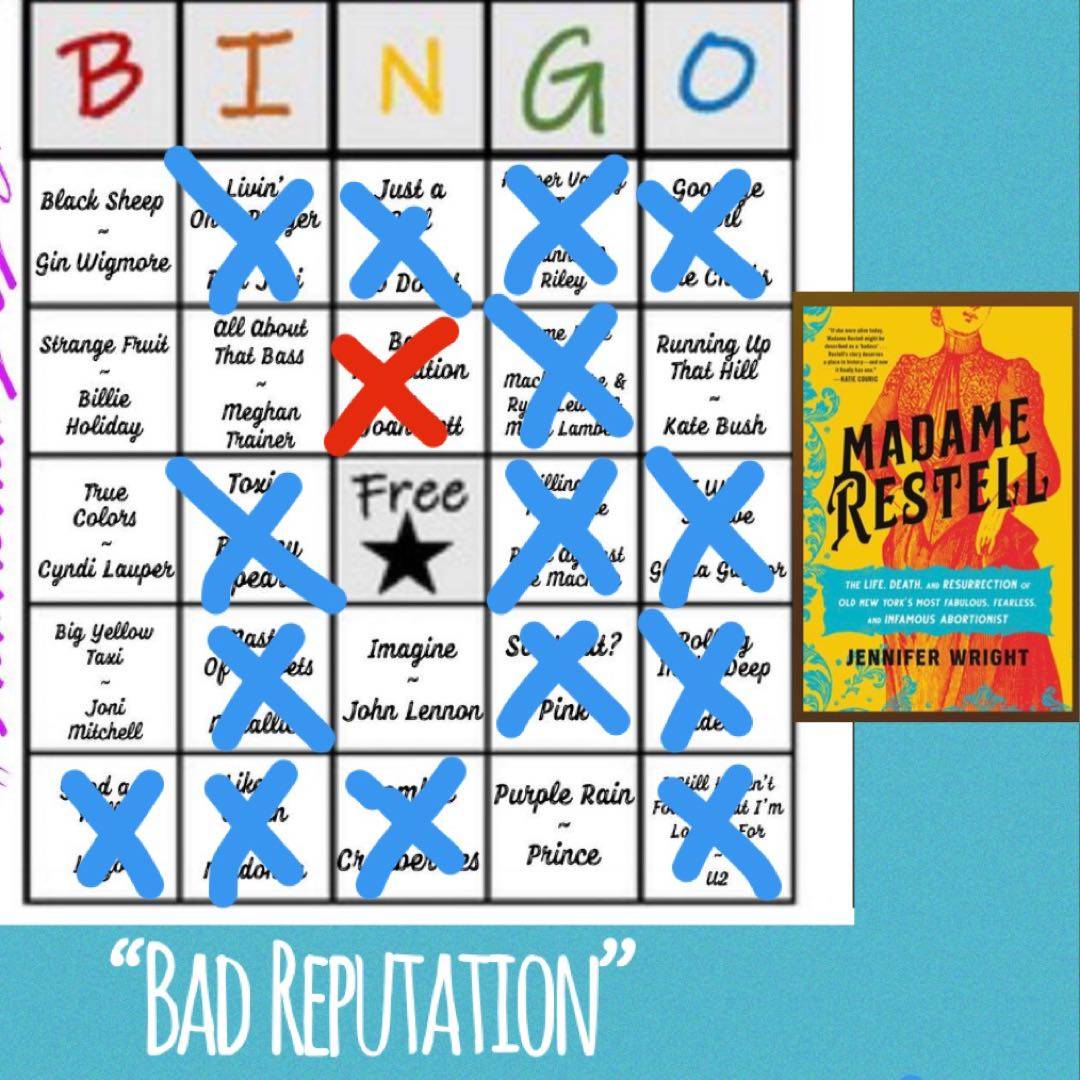
Timely and educational narrative of the life of British immigrant Ann Trow, who refashioned herself as “Madame Restell” and became NYC‘s most successful and simultaneously notorious abortion provider in the 1800s. The writing is lively and humorous while also making it starkly clear that throughout history women have always wanted to have autonomy over their own bodies. It‘s as simple as that.
#Nonfiction2023
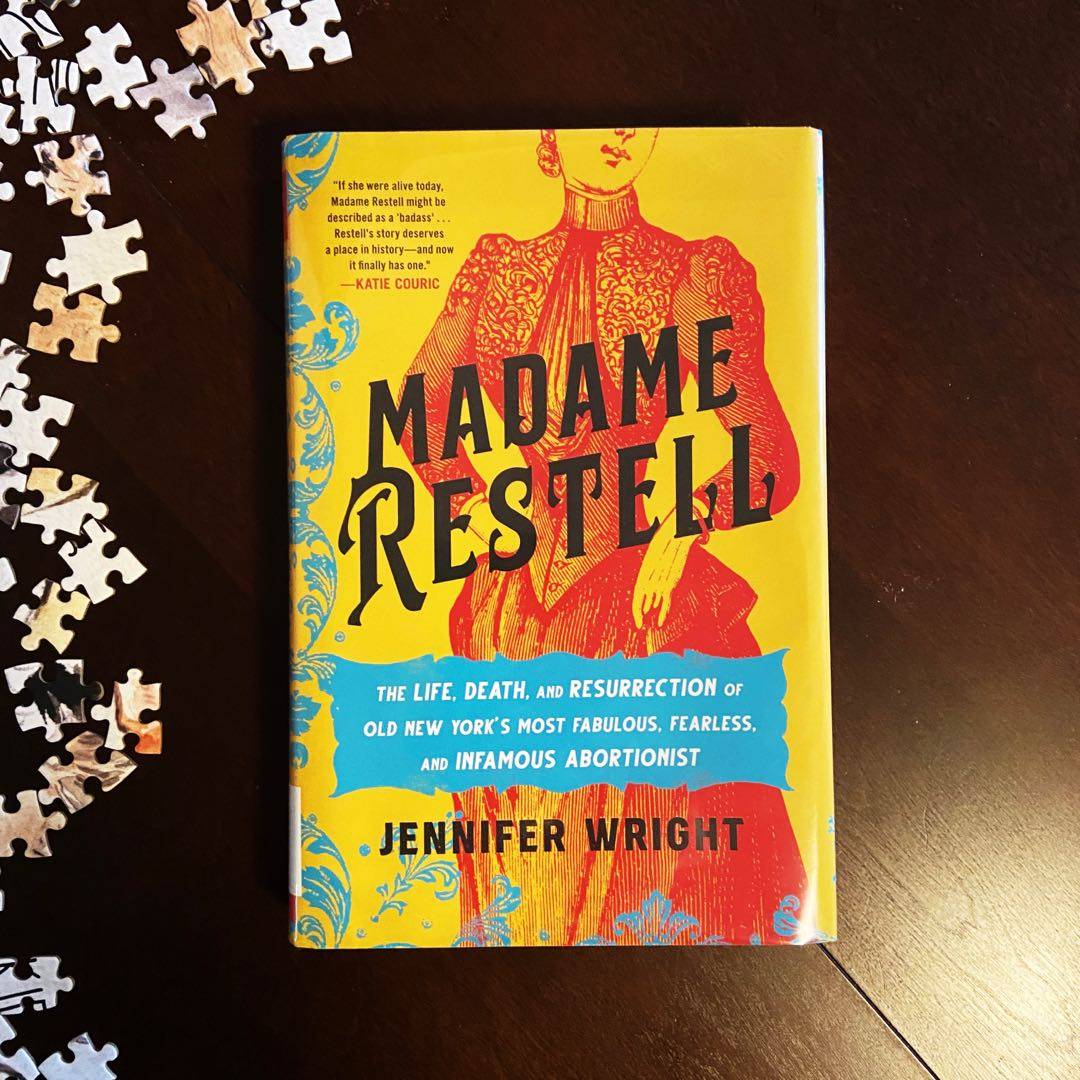
Everyone is raving about this book for good reason! Madame Restell was an immigrant to NYC who embodied the American dream of rags to riches through hard work, cunning, and brazen self-confidence. This is an important part of American history-changes in attitudes toward abortion-but also an intimate glimpse of NYC during the 19th century. It‘s a timely read in our current political environment where abortion-and control of women- is under attack.
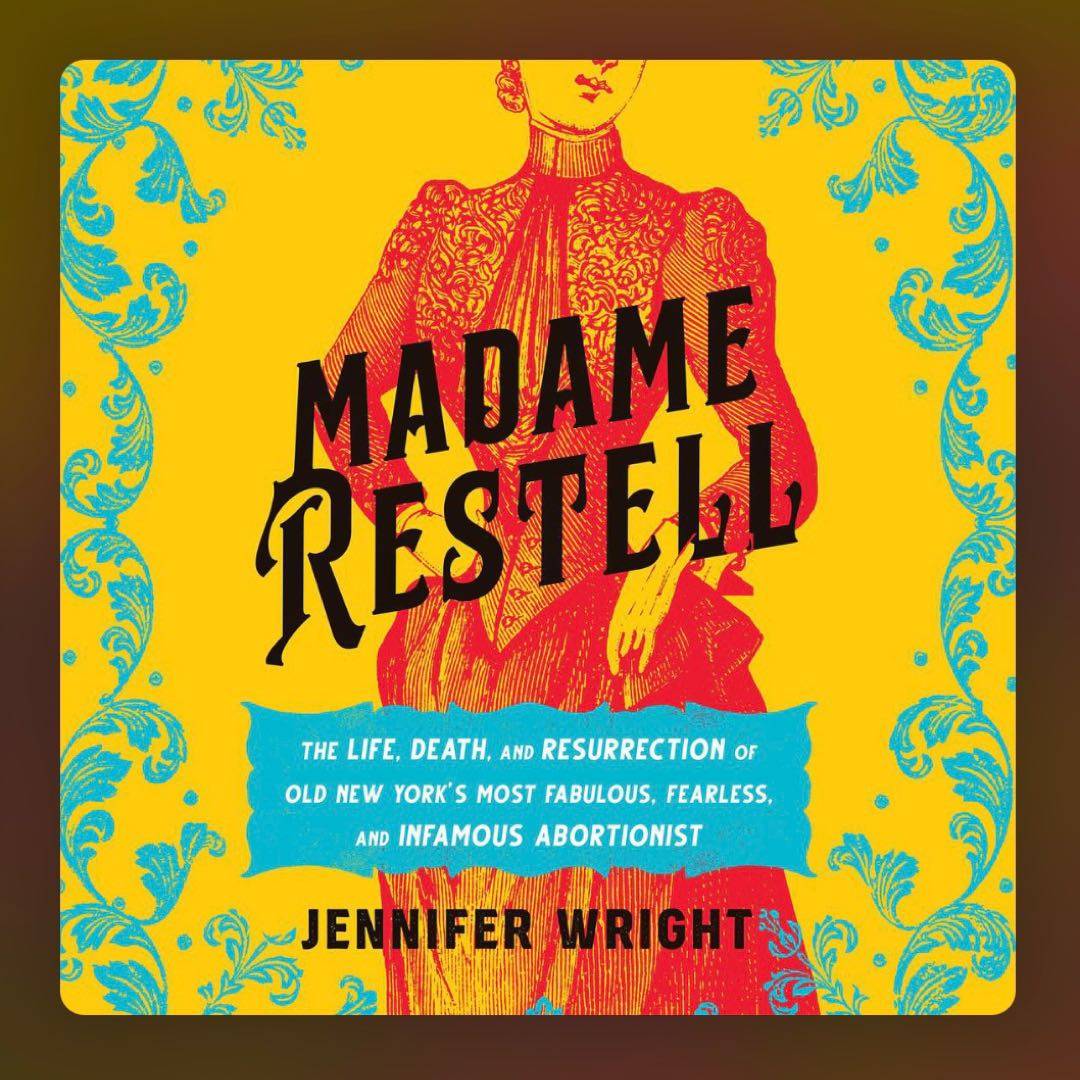
This is the fascinating story of a bright, bold, unapologetic woman in mid-1800s NY who provided women‘s health care (extremely well) in the form of abortions and birth control. It‘s ridiculously timely given our current moment and shows how various things have changed (or not) over time. Excellent read.
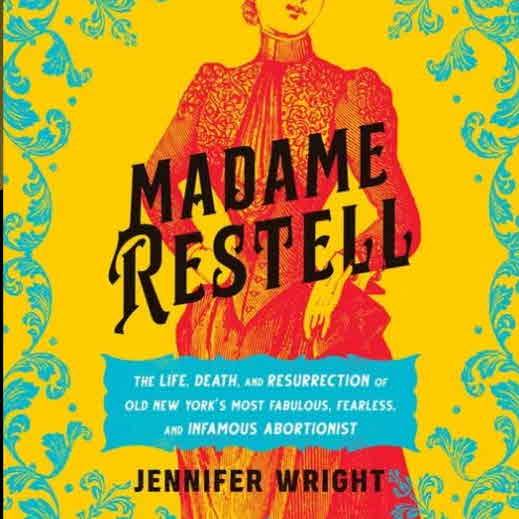
Biography of 19th century abortionist in New York City. Madame Restell was complicated, mysterious, and wealthy. She provided a service for women who had few or no other options. Her story is interesting and this book intensified my anger about how people suffered (& still do) because of repressive laws and attitudes about reproductive rights.
It is a travesty that reproductive rights have not advanced as much as they should have since her time.
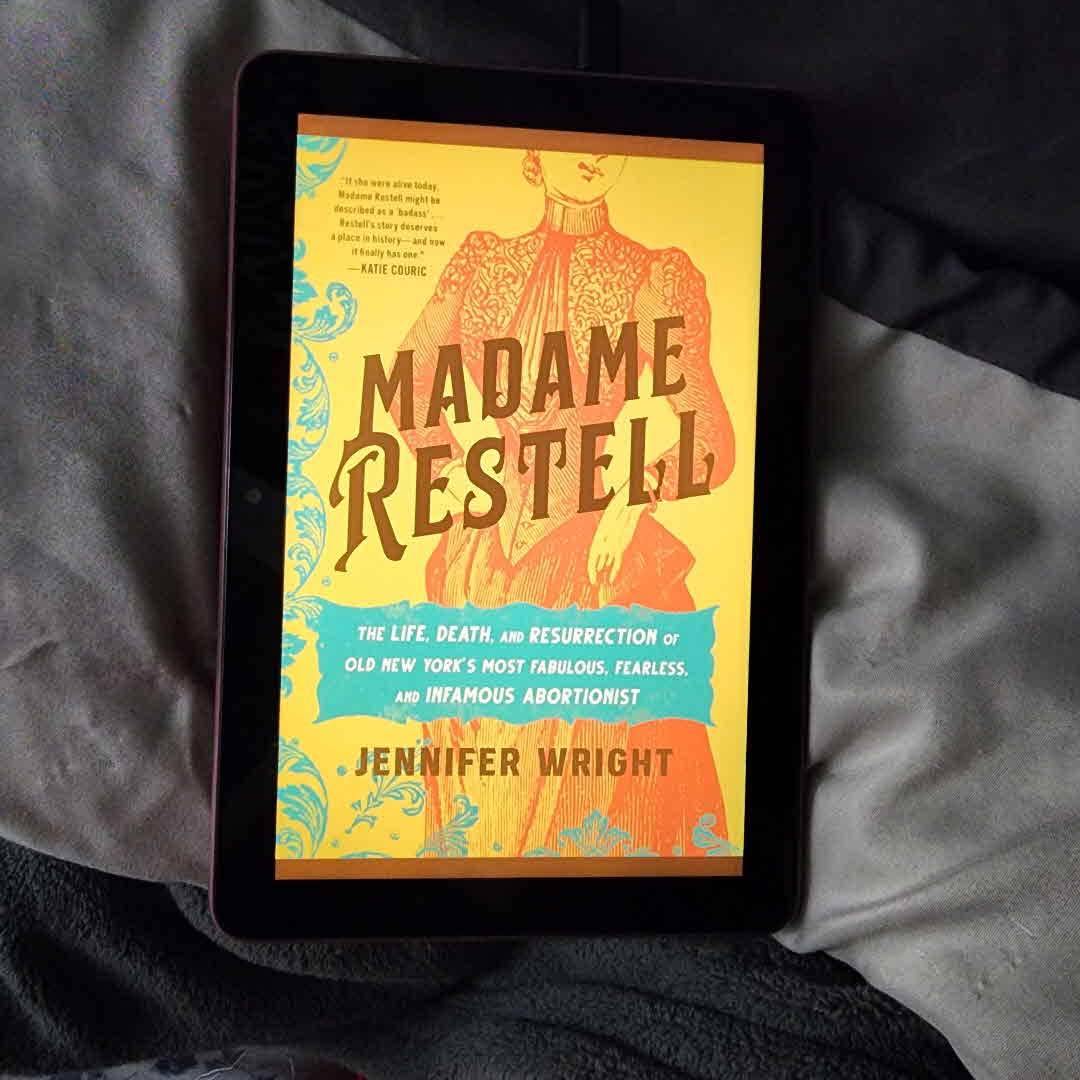
This is part of my #nonfictionchallenge #womenshistorymonthread and I found myself drawn into the history of this amazing woman. This is a MUST read for everyone, especially in light of recent laws being changed. This one will infuriate you. Or at least it did me. We had come so far only to fall back into archaic ways of thinking.
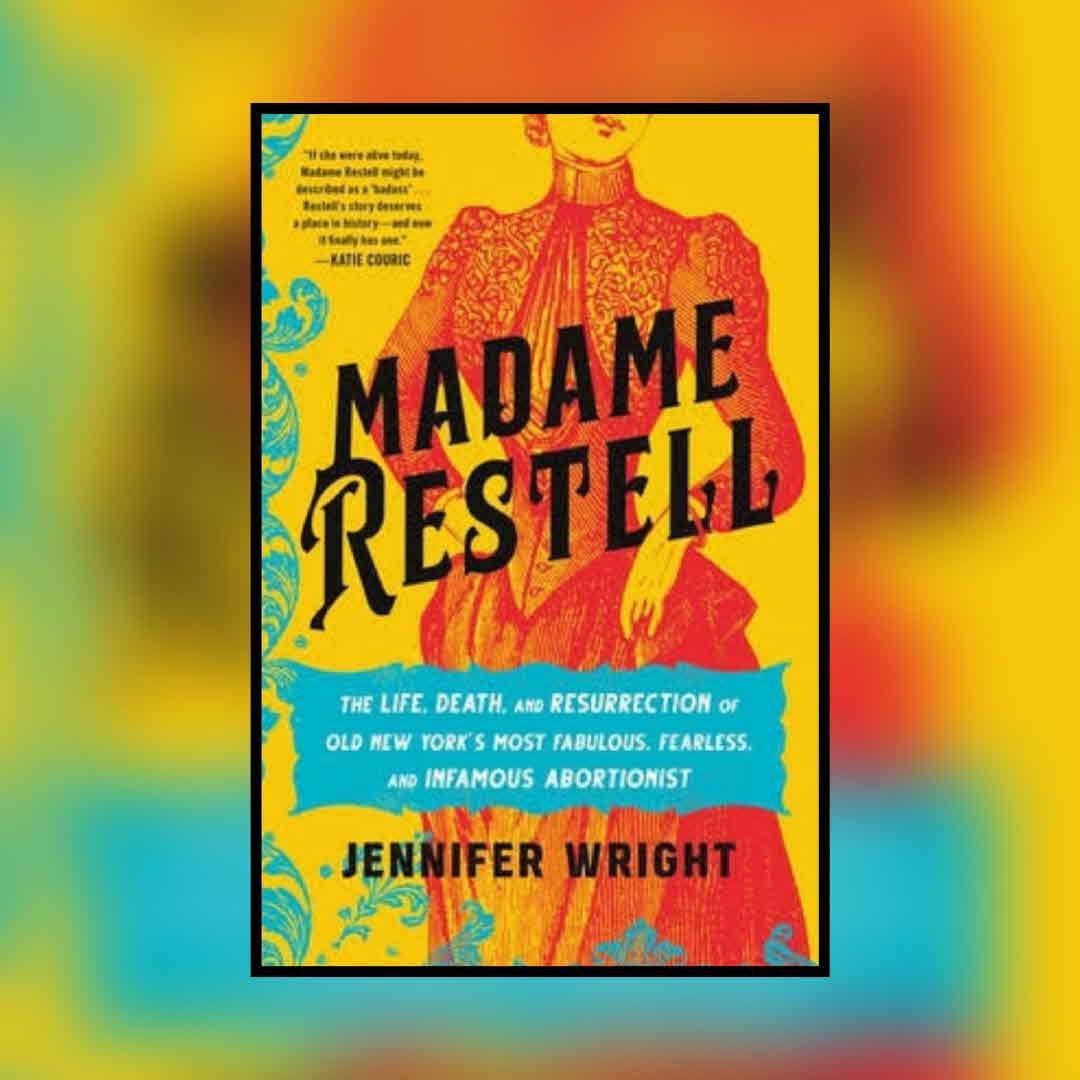
4.5/5
What a fascinating book. It looks at the life of the infamous 19th century abortionist adding in historical context of other figures she interacted with. It's a good example of how history is not a linear march toward progress. Many of the book's themes reflect our own era of misinformation and the criminalization of abortion. It's a good reminder that the past was not so different from the present.
#bookspin
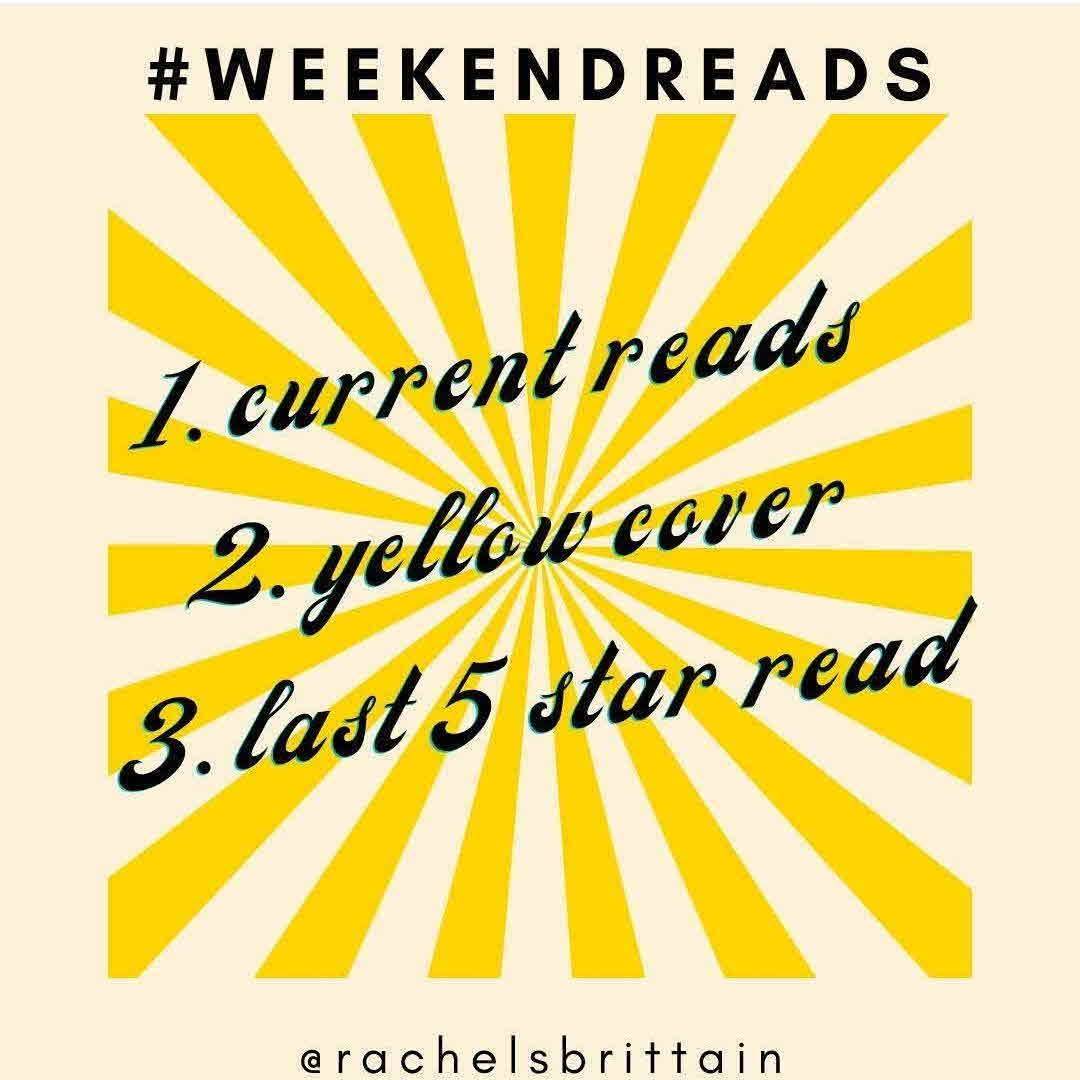
1. Madame Restell by Jennifer White (audio) and The Rom-Com Agenda by Jayne Denker (digital)
2. Good Inside by Dr. Becky Kennedy
3. How to Keep House While Drowning by KC Davis
#weekendreads @rachelsbrittain

Although it was 10:45 pm when Madame Restell opened the front door door of her fifth avenue brownstone, her face seemed unsurprised by what she saw: a strange man in a black suit, shivering on her landing.
#FirstLineFridays @ShyBookOwl
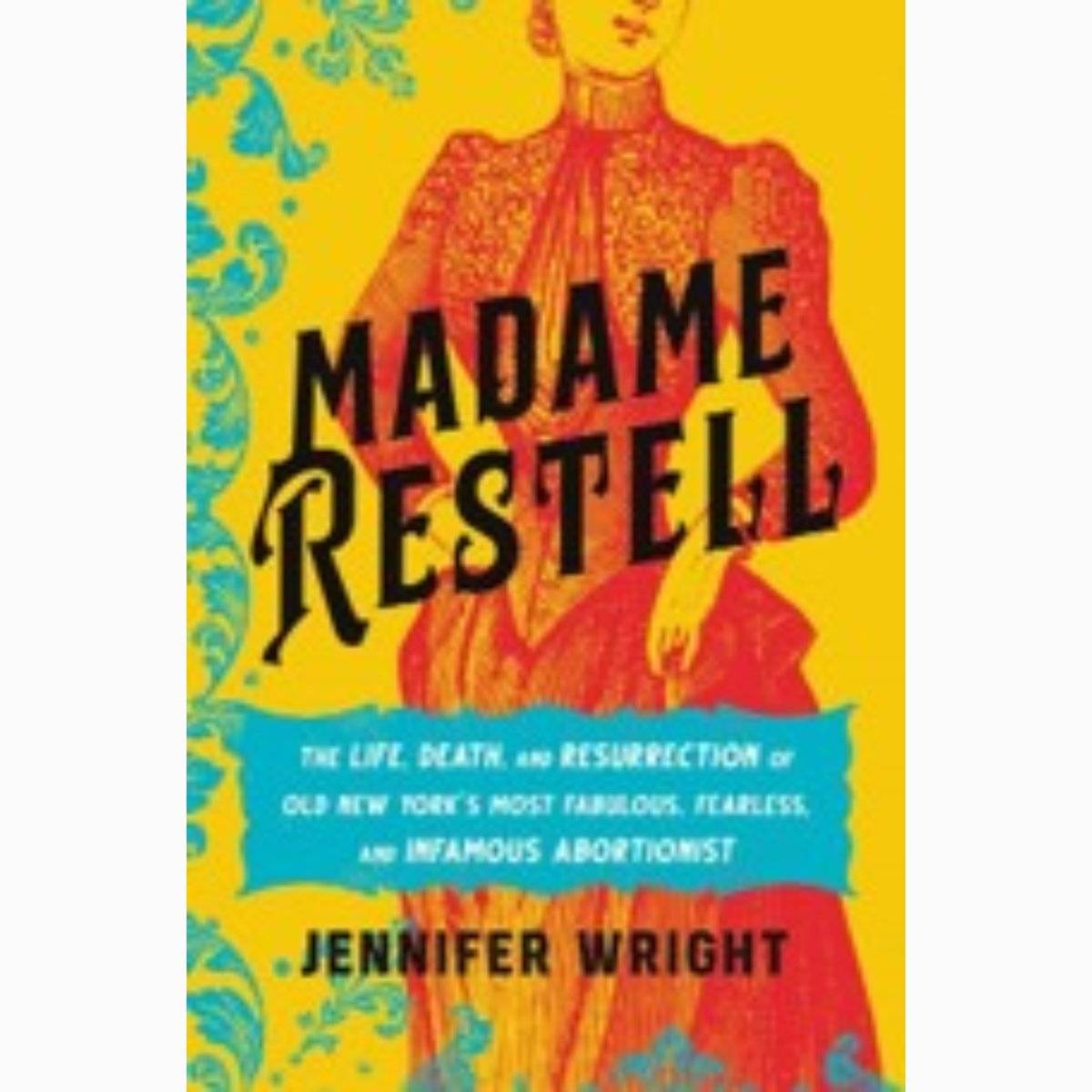
This was an entertaining and well researched history of a woman abortionist in the mid-1800's. The historical information about the changing opinions around the morality of abortion and the use of both birth control & midwives, plus the reasons for those changes, were both fascinating and frustrating. It is no surprise that much of the reasoning was to benefit males, but it also appealed to racists who worried about white birth rates. 4.5/5
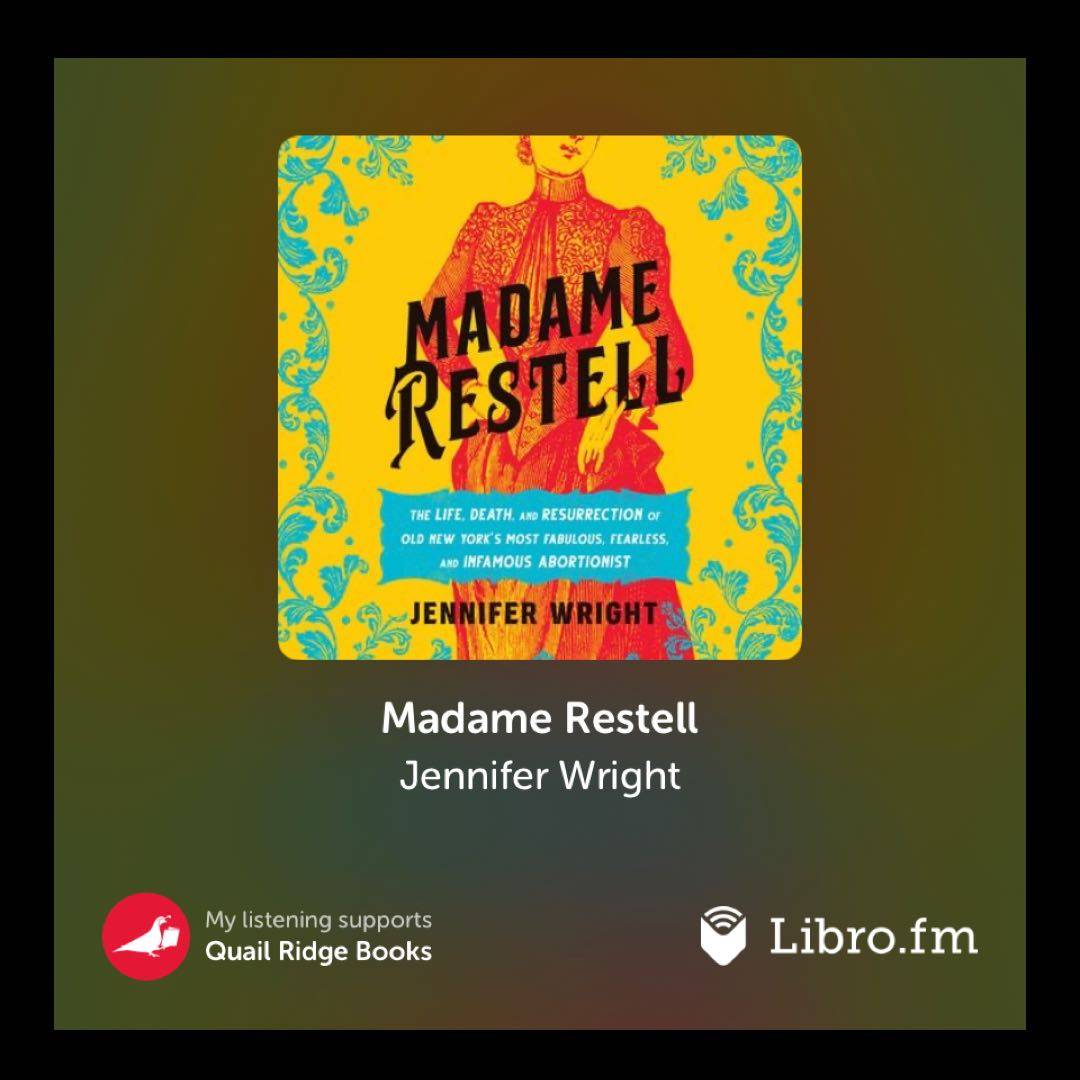
A remarkable exploration of America‘s changing views on abortion through the 19th c, through the lens of the life‘s work of a single New York provider. In addition to the biographical & abortion-related information, learned a lot of the social history of New York in the decades before and after the Civil War.
Restell was a fascinating woman, and her depiction here is complex, very warts-and-all. #ALC
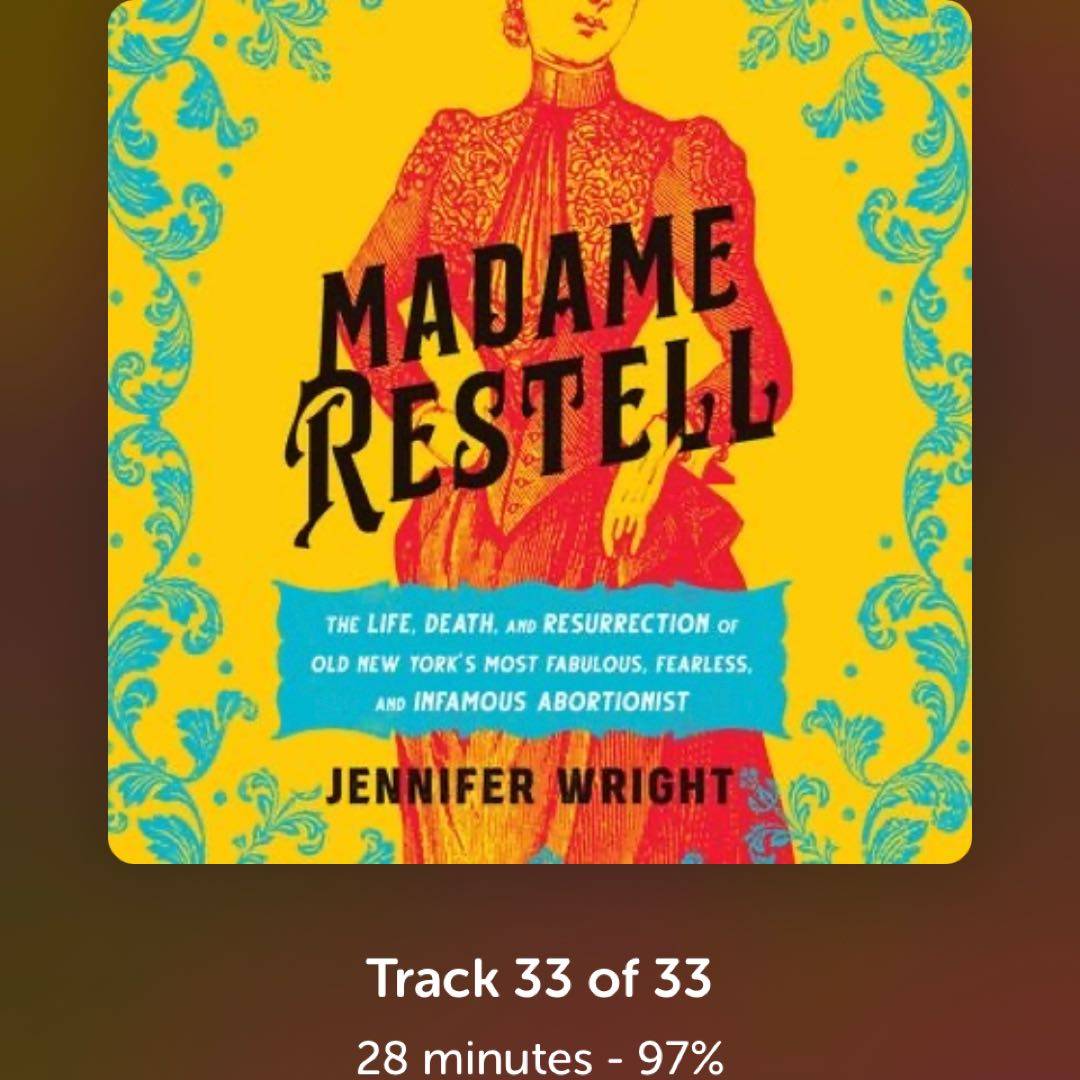
Couldn‘t figure out why there were still three tracks and about an hour of listening time left when the word “Epilogue” was uttered. The final track of this ALC from libro.fm is an interview between narrator/reader and the author- very cool bonus!
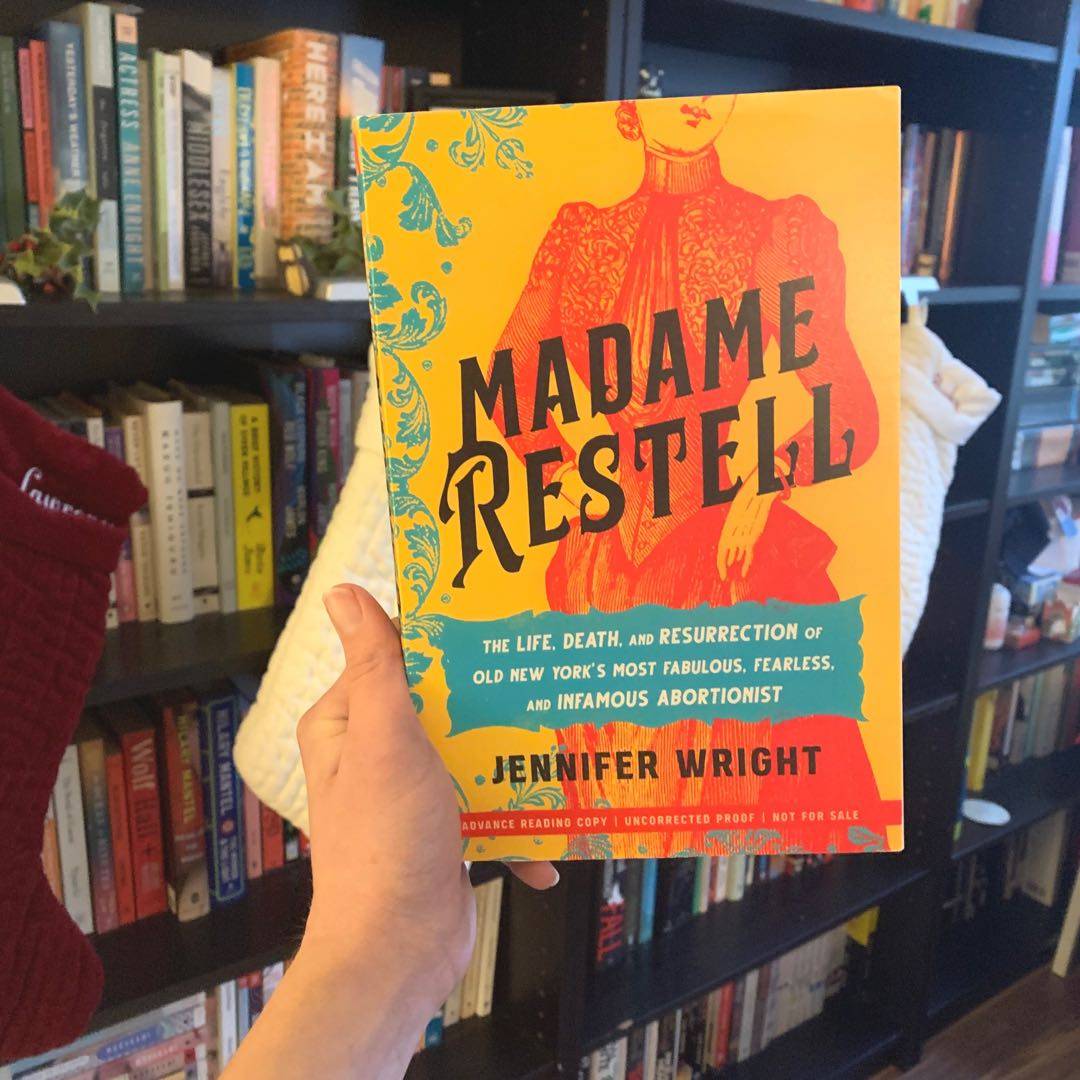
A really fabulous, engaging, and snarky history of an abortionist in the late 1800s New York. This is such an important book for our times. The epilogue was really well done as well.